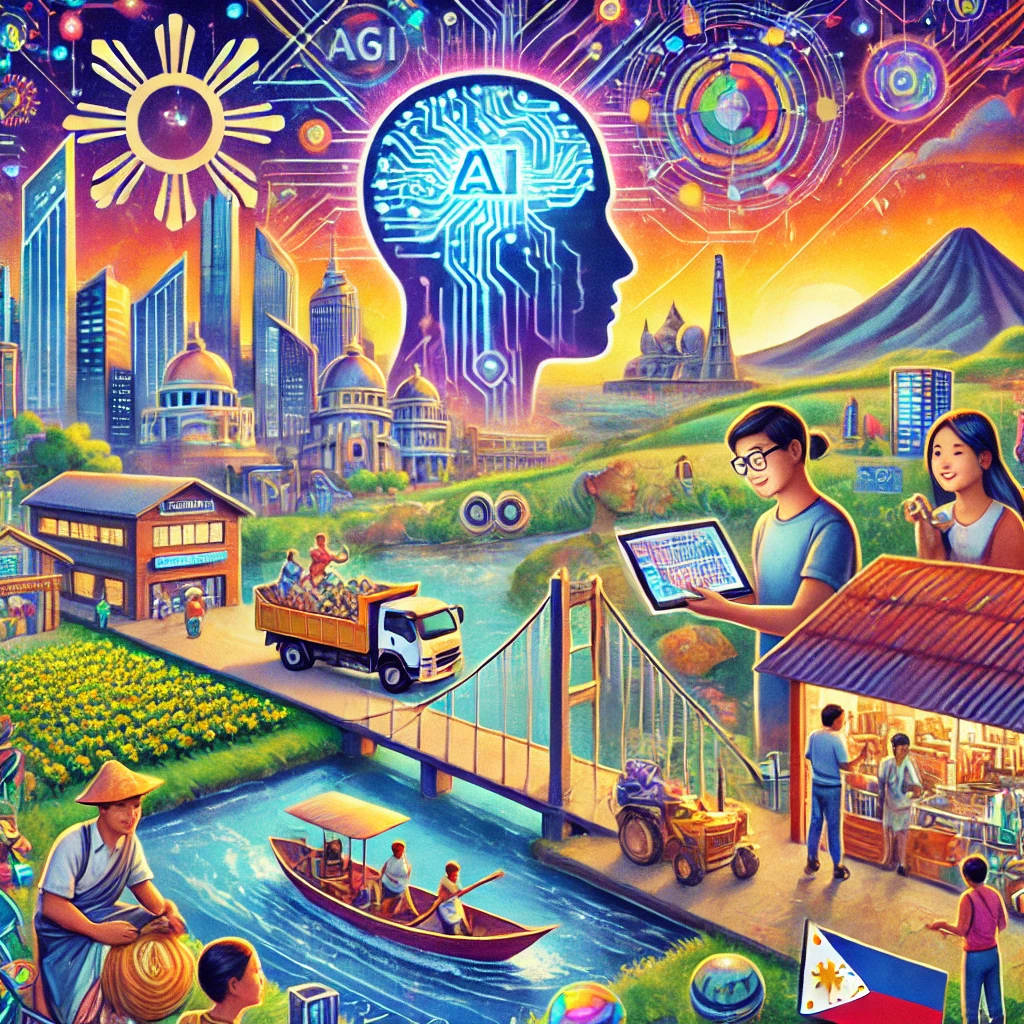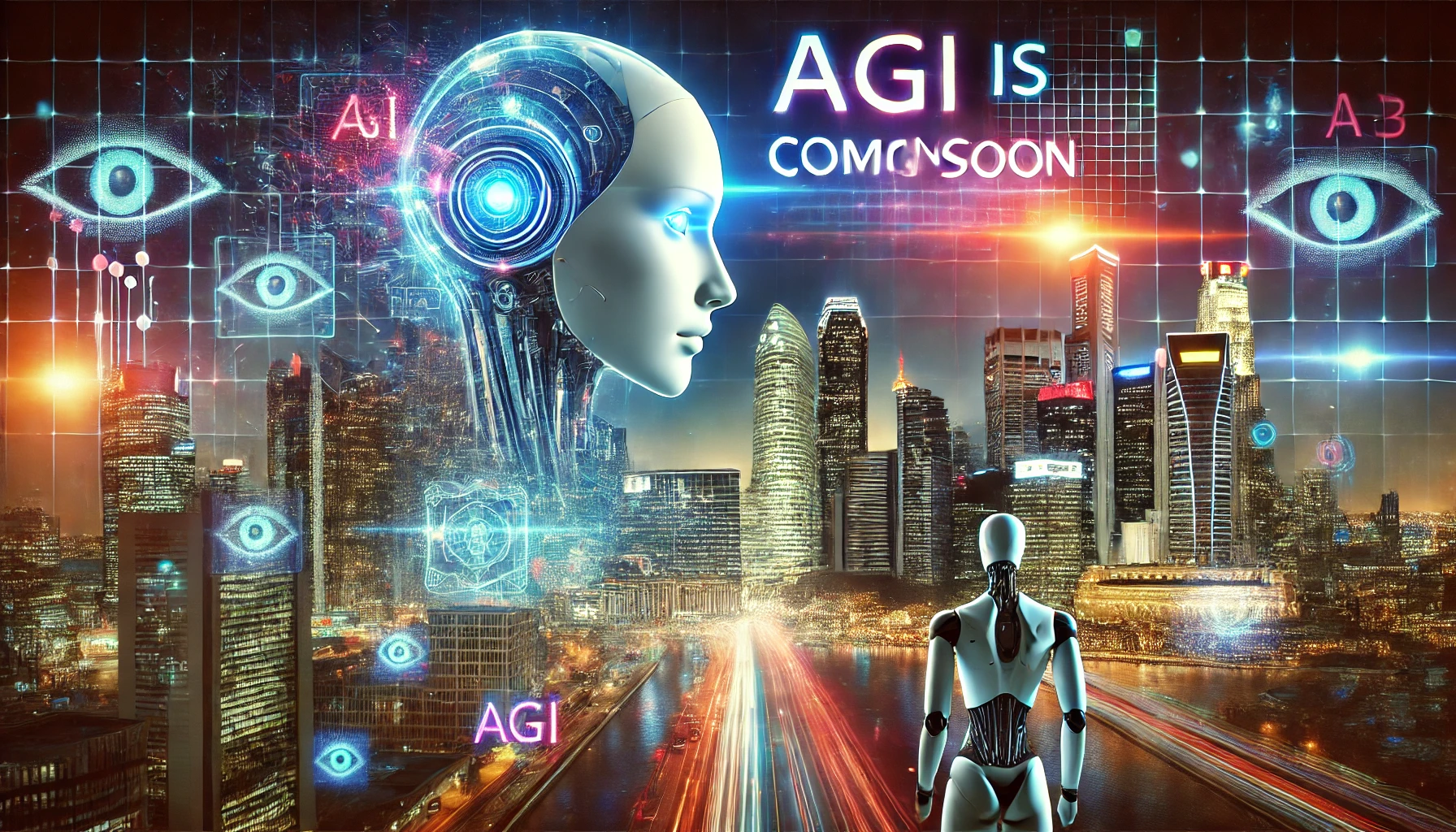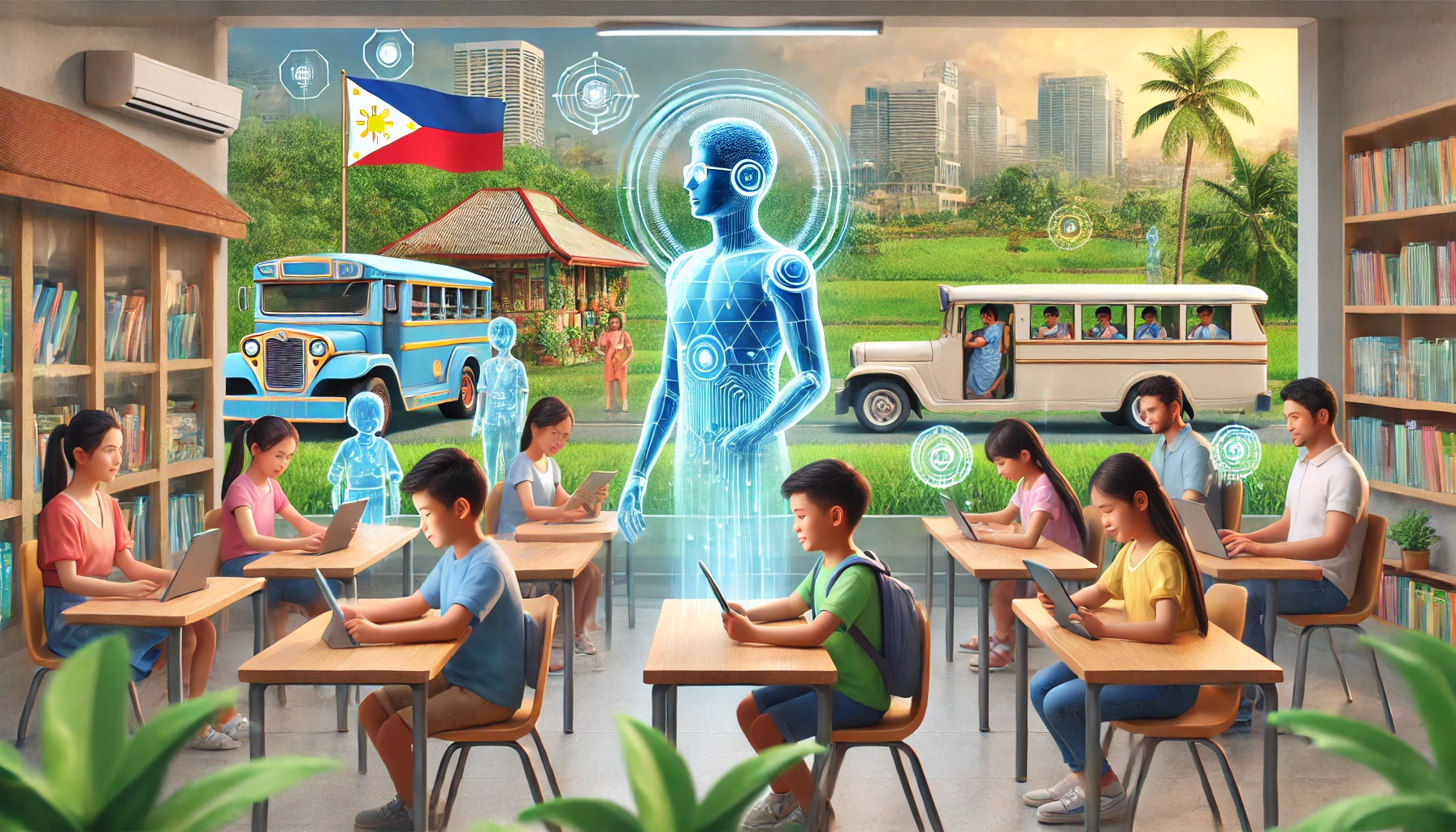The Philippines, with its vibrant culture and dynamic workforce, stands at a unique intersection of opportunity and innovation. Artificial General Intelligence (AGI), the next frontier of artificial intelligence, has the potential to reshape the country’s economic landscape, driving inclusive growth and bridging socio-economic gaps.
1. Empowering Local Industries
AGI can enhance productivity across traditional industries such as agriculture, manufacturing, and fisheries. By leveraging AGI to optimize supply chains, forecast market demands, and improve resource management, businesses can reduce costs and increase output. For small-scale farmers and producers, AGI-driven platforms could provide real-time insights into weather patterns, pest control, and market trends, enabling them to compete on a larger scale.
2. Boosting Education and Workforce Development
Access to quality education remains a challenge in rural areas of the Philippines. AGI-powered learning platforms can provide personalized, adaptive education tailored to individual students’ needs. This technology can bridge the education gap, equipping the workforce with skills relevant to a rapidly evolving global economy. By democratizing access to high-quality education, AGI ensures that individuals from all socio-economic backgrounds can participate in and benefit from economic growth.
3. Enhancing Financial Inclusion
Millions of Filipinos remain unbanked or underbanked, limiting their ability to access credit, savings, and investment opportunities. AGI can analyze vast amounts of data to create credit profiles for individuals with no formal banking history. By enabling microfinance institutions and digital banks to offer personalized financial products, AGI can drive economic participation and uplift marginalized communities.
4. Promoting Smart Urban and Rural Development
As urban centers grow and rural areas seek modernization, AGI can support sustainable development. From optimizing public transportation systems in Metro Manila to enhancing disaster preparedness and response in typhoon-prone regions, AGI can help create resilient communities. Rural areas can benefit from AGI-driven infrastructure planning, ensuring equitable access to basic services like electricity, water, and internet connectivity.
5. Fostering Innovation and Entrepreneurship
The Philippines’ growing tech ecosystem can benefit immensely from AGI by fostering innovation. Startups and small businesses can use AGI tools to identify market opportunities, automate operations, and scale efficiently. By integrating AGI into business ecosystems, entrepreneurs can compete globally while contributing to local economic development.
6. Encouraging Policy Innovation
To maximize AGI’s benefits, the government can adopt policies that promote ethical AI use and inclusivity. Public-private partnerships can be instrumental in deploying AGI in critical sectors like healthcare, education, and public administration. Transparent regulations and investments in digital infrastructure will ensure that AGI serves the interests of all Filipinos, not just a privileged few.
Conclusion
AGI offers the Philippines an unprecedented opportunity to leapfrog traditional economic models and build a future that is equitable, sustainable, and inclusive. By integrating AGI into the country’s socio-economic fabric, the Philippines can empower its people, modernize its industries, and position itself as a leader in the global AI economy.
The journey to inclusive growth through AGI requires collaboration between stakeholders—government, businesses, academia, and the public. Together, we can harness the transformative power of AGI to create a brighter future for all Filipinos.
[SEO optimized]


